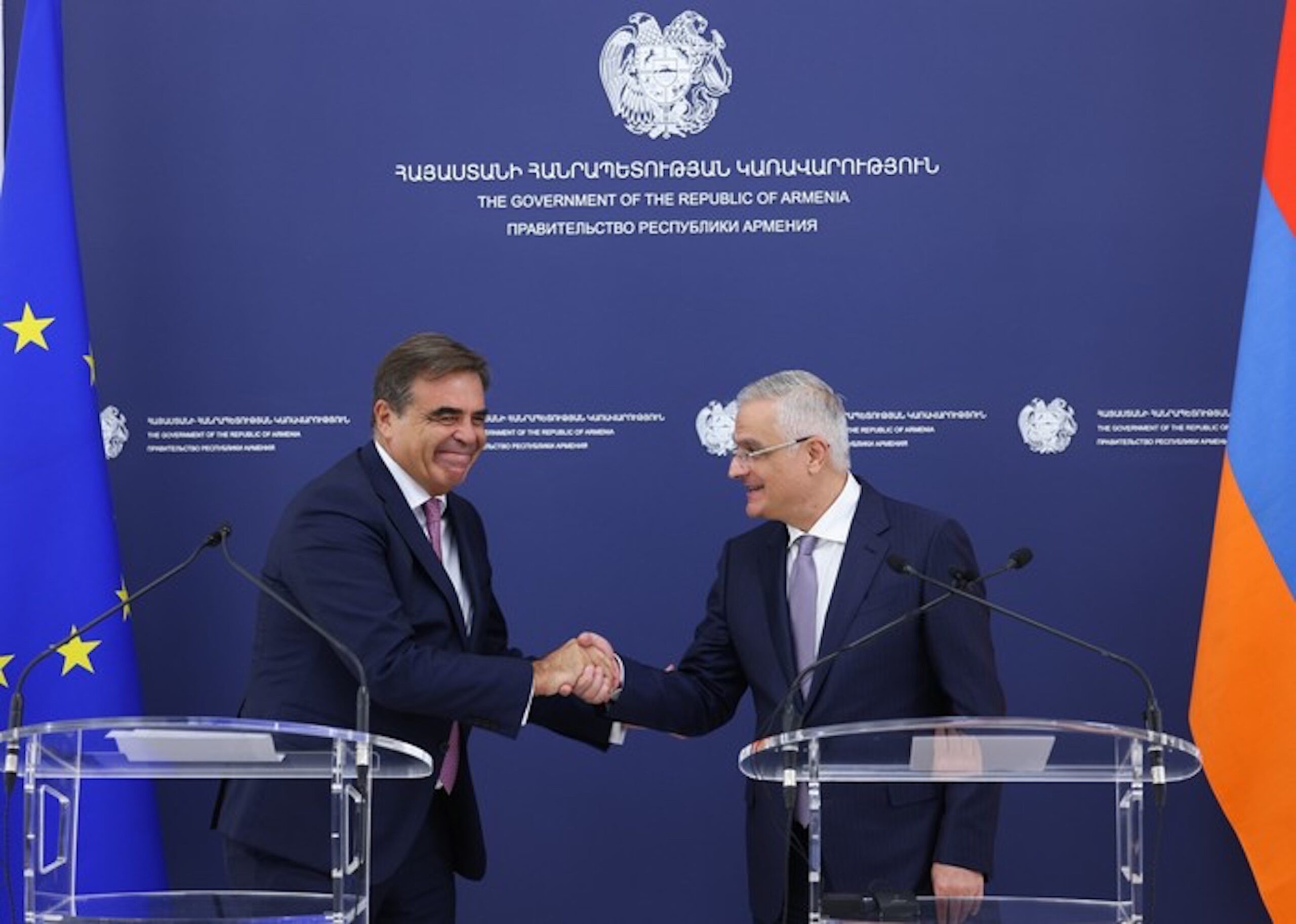
Armenia and the European Union have launched visa liberalisation talks, with Prime Minister Nikol Pashinyan stating that discussions about an eventual membership bid were also ‘underway’.
On Monday Pashinyan met with EU Commission Vice-President Margaritis Schinas during his visit to Yerevan to hold talks on EU visa liberalisation for Armenia.
During their meeting, Pashinyan stated that discussions were ‘underway’ in Armenia regarding the possibility of joining the EU.
‘This is not a simple issue, but it has become part of the Armenian political agenda, so it is necessary to approach this topic thoroughly, comprehensively and deeply,’ said Pashinyan.
He also noted that Armenia was expanding its agenda with the EU, calling it ‘an important moment’ for EU–Armenia relations.
During his visit, Schinas held visa liberalisation talks with Armenian Deputy Prime Minister, Mher Grigoryan.
Schinas praised the talks as holding ‘special historical significance’, adding that they would provide ‘many tangible benefits’ for different sectors in Armenia. He said the talks should not be seen as an ‘isolated initiative’, but rather as ‘another manifestation of the European Union’s committed attitude towards Armenia.’
However, Schinas noted that obtaining visa liberalisation would be a ‘demanding’ process for Armenia, and would require a ‘significant degree of commitment from the Government of Armenia, along with our support’.
Grigoryan welcomed the initiative and said Armenia viewed it as a ‘strategic agenda for further modernisation of migration, mobility, and border management fields and we acknowledge the necessity for continued and focused efforts to achieve this objective’.
A joint statement issued following Grigoryan and Schinas’ meeting stressed that the EU would ‘sustain ongoing efforts to support Armenia’s comprehensive reform agenda, particularly in areas which are crucial for future visa-free travel to the EU.’
‘All benchmarks must be fully met before the final decision on visa liberalisation is taken by the Council of the EU and the European Parliament,’ read the statement.
The EU requires countries to meet certain benchmarks before providing visa-free access to the Schengen area to nationals of countries that are undergoing visa liberalisation talks.
Before its citizens received visa free access to the EU, Georgia, Moldova, and Ukraine were tasked with meeting four blocks of requirements the EU Commission referred to as benchmarks, which tackled issues such as border management, migration and asylum, public order and security, and external relations and fundamental rights.
EU bodies can demand a review of visa liberalisation acts with countries that have already received them.
In April, the EU Parliament called on the EU Commission to ‘promptly assess’ the impact of Georgia’s controversial foreign agent law on its fulfilment of the fundamental rights benchmark.
A ‘more ambitious agenda’ underway
The visa liberalisation talks come as part of an ‘ambitious’ partnership agenda announced between the EU and Armenia in February, which also covered trade and security cooperation.
During Schinas’ visit, Deputy Prime Minister Grigoryan stated that bilateral ties between his country and the EU have never been ‘as intense as they are in recent years’.
‘Negotiations are currently underway on a new agenda with more ambitious and comprehensive partnership priorities, as well as a resilience and growth programme aimed at expanding the horizons of cooperation, implementing democratic reforms, and ensuring socio-economic stability,’ said Grigoryan.
Schinas’ visit to Armenia comes as the country pushes itself further away from its traditional ally Russia as their relations continue to deteriorate.
In April, the EU launched its Resilience and Growth Plan allocating €270 million ($300 million) for Armenia for 2024–2027. It also approved a €10 million ($11 million) non-lethal military aid package for Armenia as part EU Peace Facility this summer.









